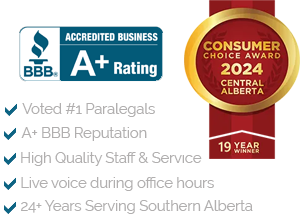Parenting After Separation Seminar
What is the Parenting After Separation Seminar (PAS) About?
 This Parenting after Separation seminar is one of many free seminars and
This Parenting after Separation seminar is one of many free seminars and
services offered by Family Justice Services, a division of the Department of Justice Canada, and in coordination with the Alberta Courts. The purpose of this seminar is to give parents who are separated or seeking a divorce the knowledge and tools they will require to better serve their children’s health, social and emotional needs.
Why is the Government Providing this Free Course?
Studies have shown that children of parents who complete the program are much less likely to develop Parental Alienation Syndrome. As the children’s mental health is paramount, it is in their best interests that the government funds this type of program. As well, attendance in the free course will provide the following additional benefits:
- answers frequently asked questions about custody, access and child support;
- helps parents learn how to minimize the impact of separation and/or divorce on children; and
- reduces the risk of conflict between the parties and before the courts on matters concerning the children.
I remember once having a friend who used to be in high conflict with the mother of his children. He attended the seminar and learned how separated and fighting parents can negatively affect children. He then called the mother of his children and arranged a friendly lunch to discuss the things that he learned. It was a pivotal turning point in their co-parenting—and from that point forward, their co-parenting became very friendly.
How do I register for the course?
Previously, the seminar was only available in-class on a Saturday (full-day) or two evenings. But now you can complete the course on-line in 3 hours! You can visit the Alberta Government’s Website here: https://pas.albertacourts.ab.ca/PAS-course . Click the “Register to Access Course” button.
Course Topics
Topics parents will learn include:
- Relationship Building Blocks
- How Children Can Cope with Separation and Divorce
- Learning Your Way Around the Legal System
- Parenting Plans That Work for Your Family
- Important Information and resources to assist you
Is the PAS Course Mandatory?
In the Court of Queen’s Bench of Alberta, filing a Certificate of Completion of the Parenting after Separation program is required in most cases before finalizing a divorce. In the Alberta Provincial Court, Judges often order the completion of the course before proceeding with any type of application involving children (ie. custody, access and child support).
Can I get an Exemption from the Parenting After Separation Seminar?
Yes, it is possible that you may be able to apply for and receive an exemption from attending the seminar. But, now that the seminar is available on-line, exemptions are difficult to obtain. If you are in a battle over custody, access and child support with your spouse and you refuse to take the PAS Course, it may negatively affect the outcome of your case (ie. if you are not willing to take it, the Judge might assume you do not have the children’s bests interests at heart).
The following situations may qualify you for an exemption (but we recommend that you make every effort to take the course):
- parties have an executed legal separation agreement (signed with lawyers);
- the children are 16 years of age or older;
- the parties have sworn Affidavits confirming they have settled all issues between them;
- the parties have been separate and apart for over 10 years;
- the children live out of the Country or with a third party;
- cases involving kidnapping or domestic abuse; and
- other extraordinary circumstances.
Often it is more work to get an exemption than simply taking the online course.
Other Courses
Other available seminars include:
- Parenting After Separation High Conflict
- Focus on Communication
To learn more about all of these seminars, click this link: Family Justice Services Seminars
Parenting Lessons
One of the interesting take-a-ways I got from this seminar is that children identify with both parents. If you criticize the other parent in front of the children—effectively it’s like criticizing your children. Also, it brings the children a tremendous amount of joy when:
- you talk kindly of the other parent in front of the children; and
- get them excited when it comes time to buy or make presents for the other parent.
Most importantly, it is important that you do these nice things even if the other parent does not do them for you. You will also learn how typical behaviors arise in children as they reach certain ages, as a result of their parents’ separation and/or divorce. You will learn the age-related behaviors that can be expected, and how best to manage them.
Do you have favorite lessons that you’ve learned from this or other parenting courses? Please feel free to share your comments below. In the meantime, here is a fantastic video providing children’s perspective of divorce.


